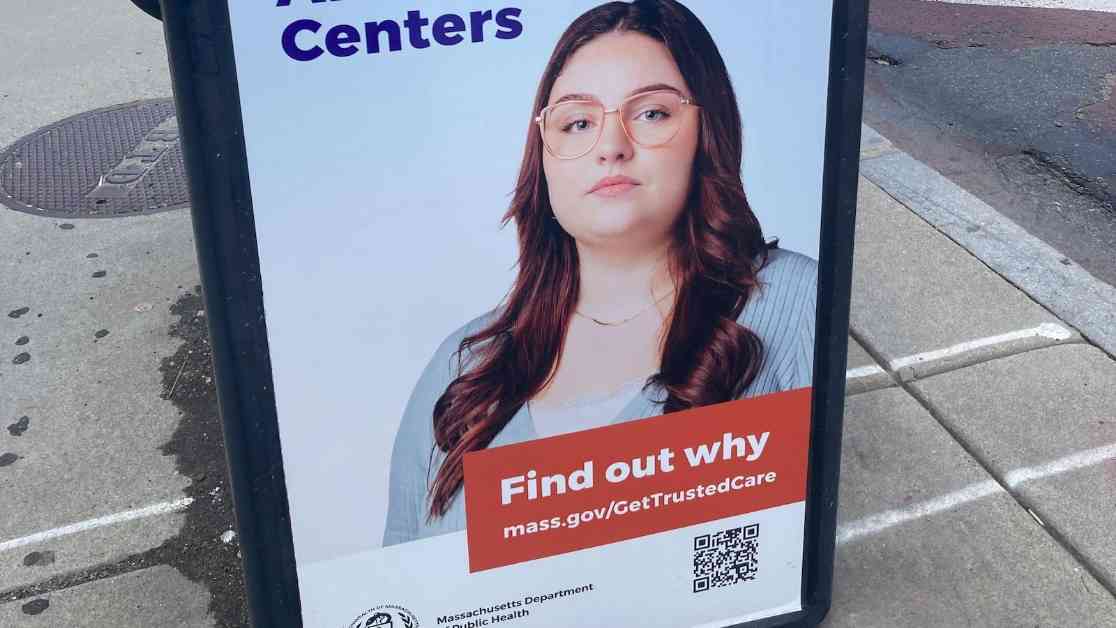Massachusetts Faces Lawsuit Over Crisis Pregnancy Centers Targeting Anti-Abortion Practices
In a controversial move, Massachusetts Governor Maura Healey launched a $1 million taxpayer-funded initiative in June aimed at dissuading individuals from seeking assistance from “crisis pregnancy centers” that often have religious affiliations and advocate against abortion. These centers, which the administration has labeled as “anti-abortion,” provide counseling services that discourage abortion and promote alternatives. The campaign includes advertisements on social media, billboards, radio, and buses, cautioning people to avoid these centers as they are perceived as unreliable sources for comprehensive reproductive health care.
The operators of these crisis pregnancy centers have joined forces with a national conservative law firm to challenge the state’s campaign, arguing that it violates their constitutional rights. The American Center for Law and Justice, based in Washington, filed a lawsuit on behalf of Your Options Medical, which operates four anti-abortion pregnancy clinics in eastern Massachusetts. The lawsuit names Governor Healey, state Department of Public Health Commissioner Robert Goldstein, and Rebecca Hart Holder, executive director of the Reproductive Equity Now Foundation, a nonprofit organization focused on promoting equitable access to reproductive health care.
The plaintiffs allege that the state’s initiative infringes on their free speech and equal protection rights as operators of crisis pregnancy centers. They also claim that the campaign amounts to religious discrimination, targeting them for their beliefs and practices. The lawsuit asserts that the state’s partnership with the Reproductive Equity Now Foundation, a “pro-abortion group,” is an attempt to discredit and dismantle every crisis pregnancy center in Massachusetts. The Department of Public Health and the Reproductive Equity Now Foundation collaborated on the ad campaign that prompted the legal action.
Governor Healey has vowed to continue advocating for reproductive freedom in Massachusetts despite the lawsuit. She emphasized the importance of ensuring that women in the state have access to the care they need, regardless of the legal challenges. The Department of Public Health declined to comment on the lawsuit, while the Reproductive Equity Now Foundation did not immediately respond to requests for comment.
Commissioner Goldstein defended the state’s initiative, stating that individuals often seek help from anti-abortion centers without realizing the potential risks associated with these facilities. Your Options Medical, licensed by the Massachusetts Department of Public Health since 1999, operates both physical clinics and a mobile medical unit that provides pro-life services. The lawsuit contends that the state’s campaign unfairly targets crisis pregnancy centers by spreading misinformation and portraying them as public safety threats.
Controversy Surrounding Crisis Pregnancy Centers
The lawsuit against Massachusetts is part of a broader debate surrounding crisis pregnancy centers and their practices nationwide. With the Supreme Court’s decision to end constitutional protections for abortion, states have taken varying approaches to regulating these facilities. Predominantly red states have allocated significant funding to support anti-abortion pregnancy centers, while Democratic-leaning states have sought to impose restrictions on their operations.
In West Virginia, a coalition supporting a network of anti-abortion pregnancy centers received $1 million in tax dollars last year to promote alternatives to abortion. Similarly, California sued an anti-abortion group and a chain of counseling centers for misleading women about abortion procedures. In Illinois, lawmakers passed a law allowing the state to penalize anti-abortion counseling centers for using deceptive practices.
Implications of the Lawsuit
The lawsuit against Massachusetts raises important legal and ethical questions about the government’s role in regulating crisis pregnancy centers. Critics argue that the state’s campaign infringes on the centers’ rights to free speech and religious expression, while supporters contend that it is necessary to protect individuals seeking reproductive health care.
As the legal battle unfolds, the outcome will have far-reaching implications for crisis pregnancy centers and their ability to operate in Massachusetts. The case may also set a precedent for how other states address similar issues related to abortion and reproductive rights.
In the midst of this controversy, it is essential to consider the impact on individuals seeking assistance from crisis pregnancy centers. These individuals often turn to these facilities in times of need, seeking guidance and support during unplanned pregnancies. Any restrictions or limitations imposed on these centers could have significant consequences for those who rely on their services.
Conclusion
The lawsuit against Massachusetts underscores the complex and contentious nature of the debate surrounding crisis pregnancy centers and their anti-abortion practices. As legal proceedings continue, it is crucial to consider the perspectives of all parties involved and the potential implications for reproductive rights in the state. Ultimately, the resolution of this case will have lasting effects on the regulation of crisis pregnancy centers and the broader landscape of reproductive health care in Massachusetts.


















